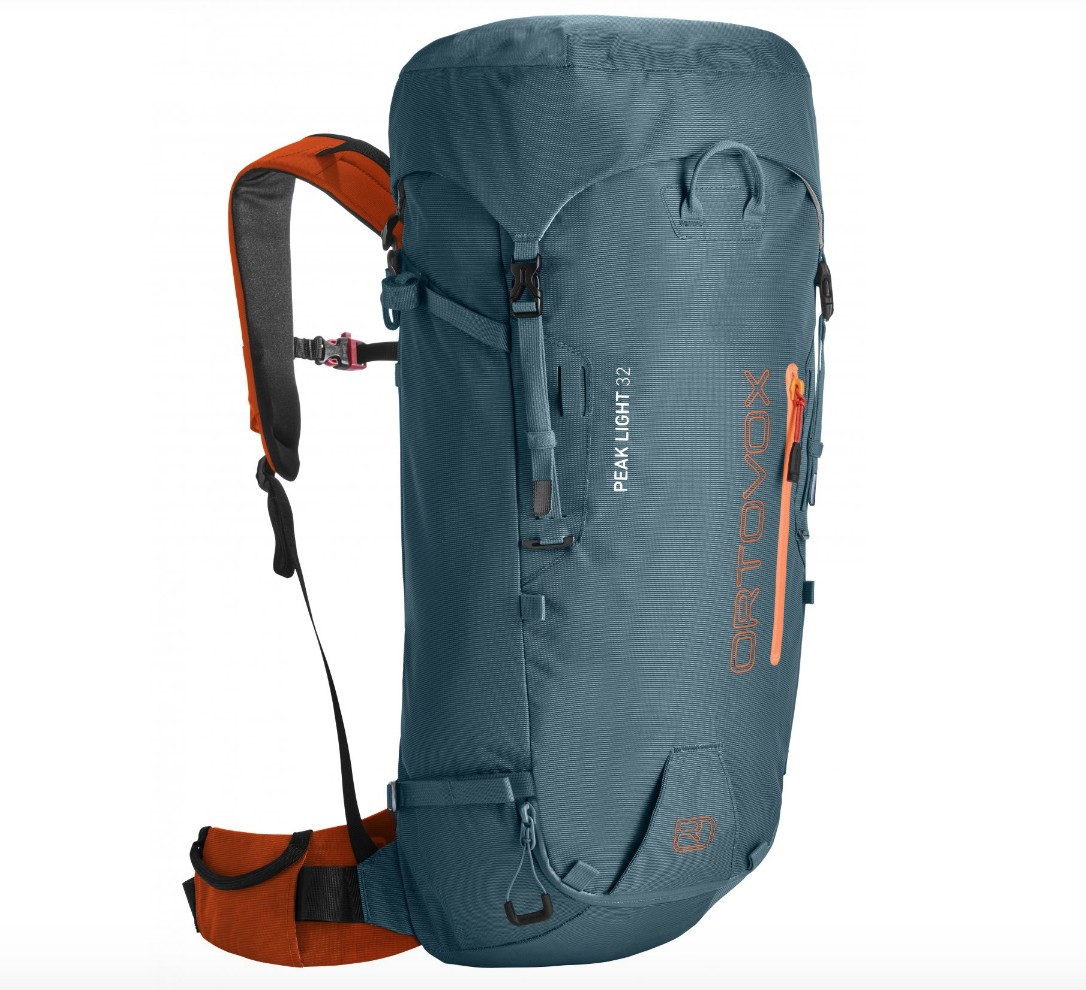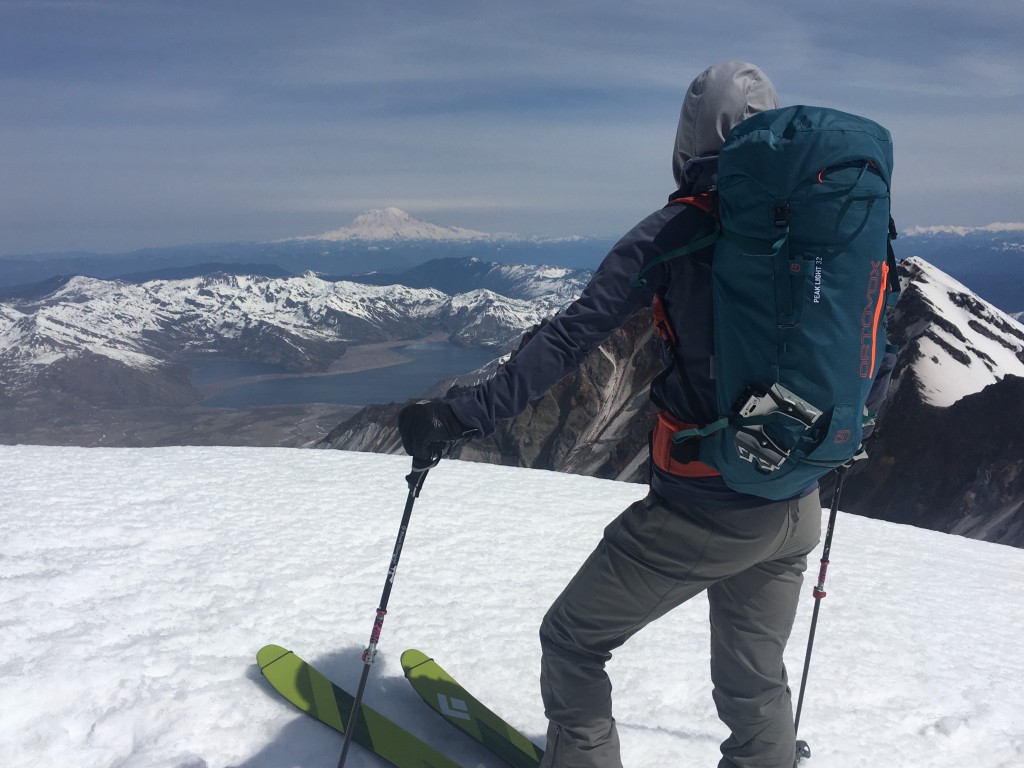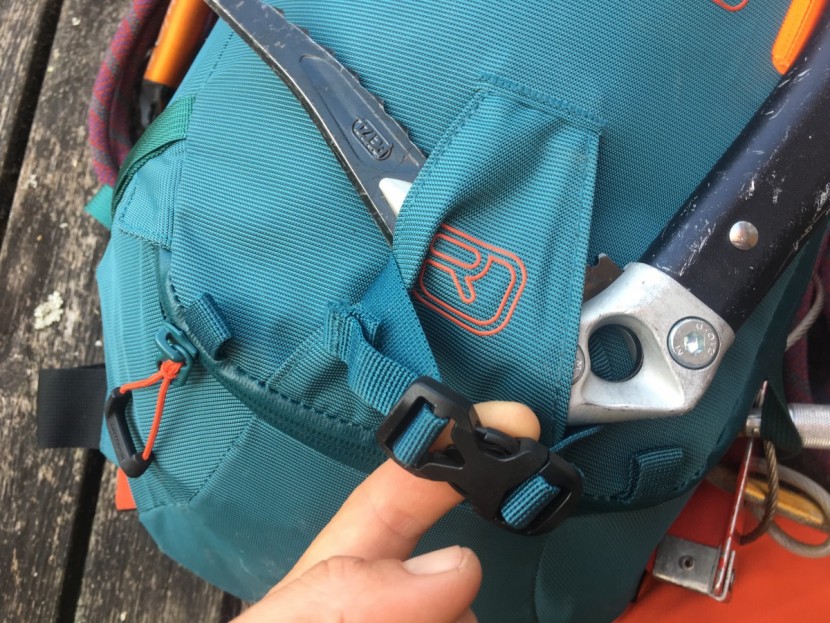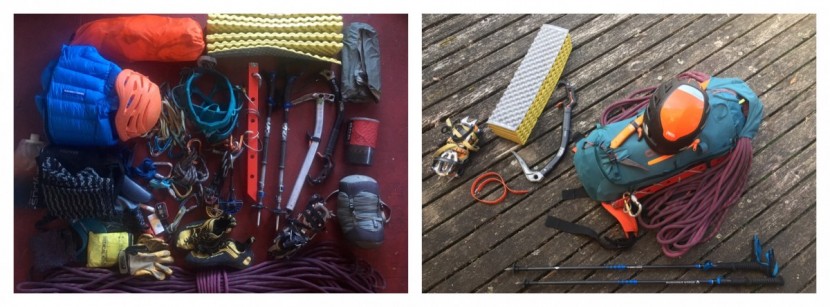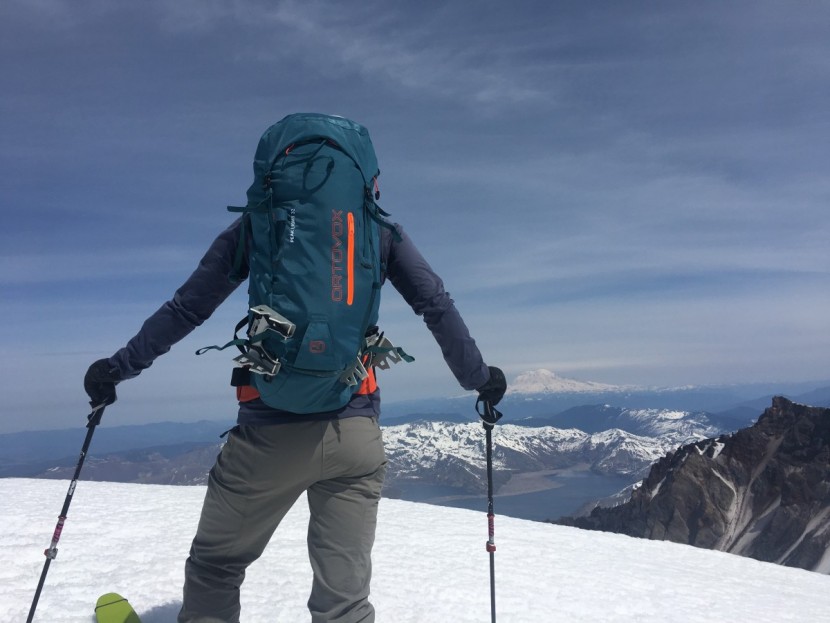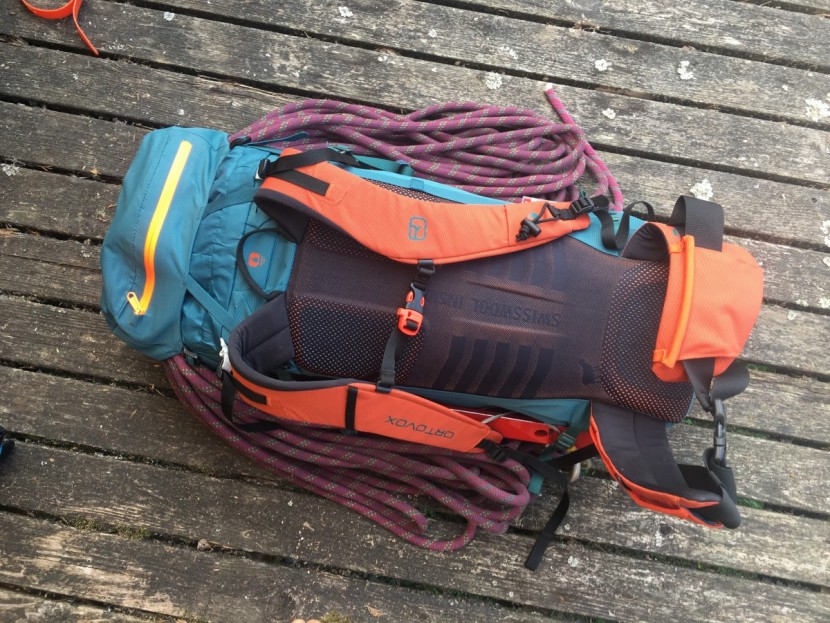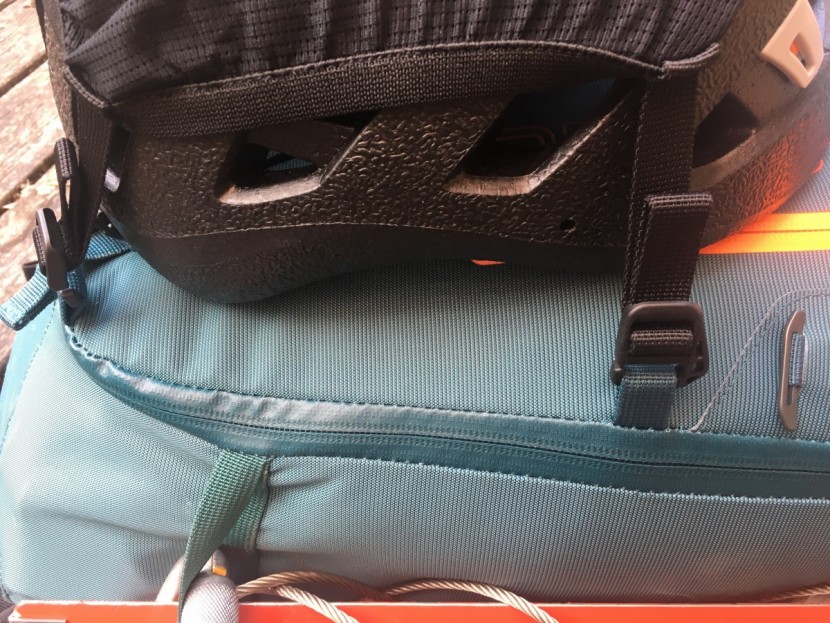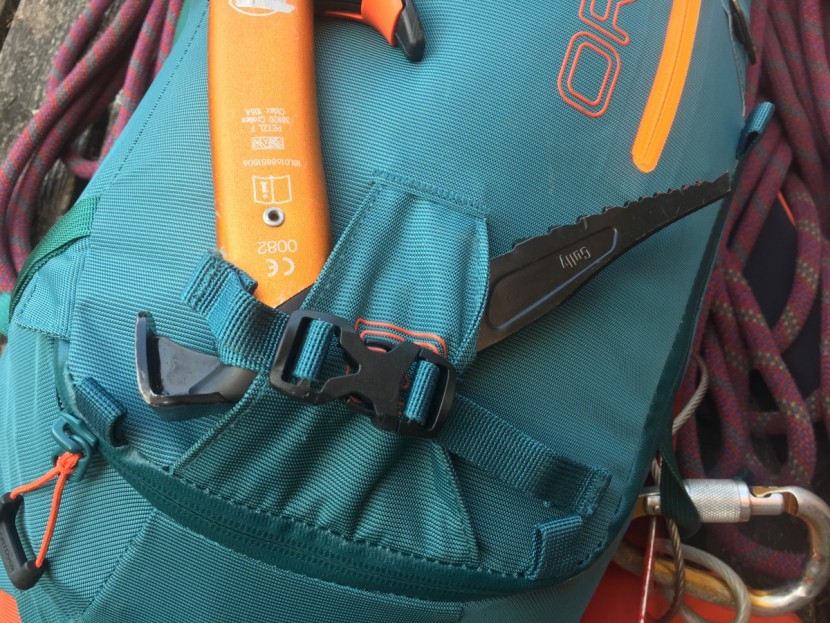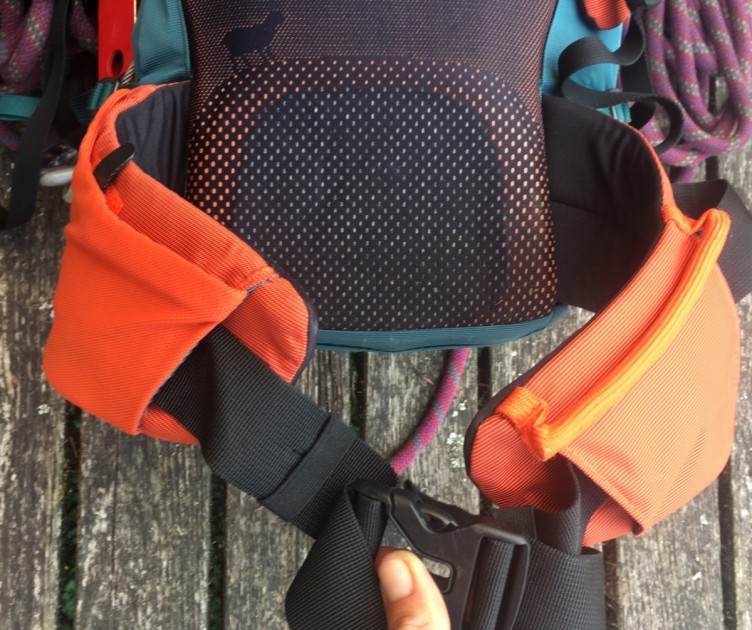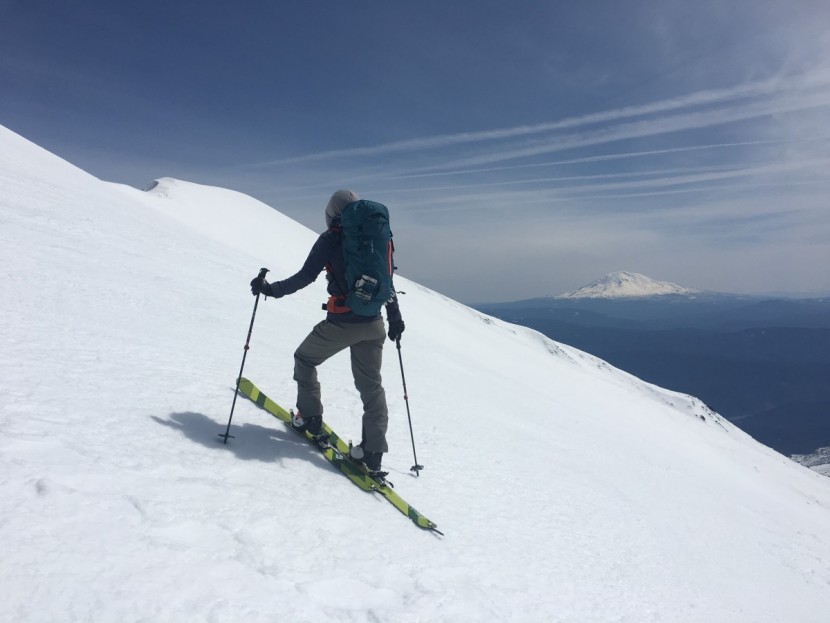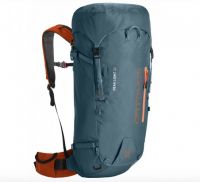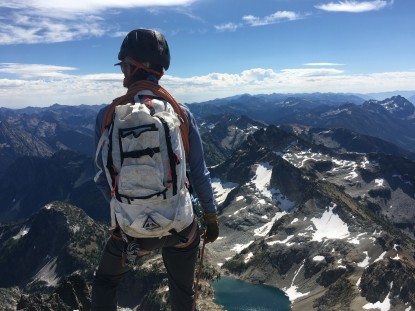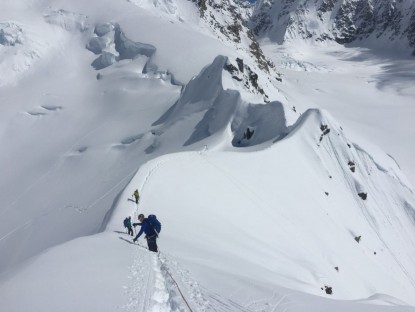Ortovox Peak Light 32L Review

Our Verdict
Our Analysis and Test Results
The Peak Light 32 from Ortovox is well designed, durable enough for ski mountaineering, and very comfortable to ski with. The pack has some unusual features, making it less versatile in some regards, but overall, we appreciate the high quality.
Versatility
The Peak Light 32 is optimized for ski mountaineering and very suitable for alpine climbing as well. It is durable, compact, and fully featured for any mountain sport. The front access zipper makes it possible to pack avalanche rescue equipment so that it is always easy to access. The durability of the materials also means it is well suited to ski mountaineering, though it does make the pack a bit heavier, so we didn't like it as much for alpine rock routes.
One important note is that technical ice tools without a hammer or adze may not attach securely to the backpack due to the alignment of the buckle.
Weight to Volume Ratio
The Peak Light is not the lightest pack for the volume in this review. It is made of more durable 420 denier nylon with Swiss Wooltec knit construction in the back panel. These are not ultralight materials, but they have other excellent attributes such as improved longevity with the burly fabric and excellent comfort and moisture-wicking with wool against your back.
The Peak Light is optimized for ski mountaineering, and we do like a lightweight pack for this activity. But we also want the fabric to hold up against ski edges and all of the sharp objects we may be strapping to the outside. In the end, the small size of this pack ensures it is not too heavy, and the features are very useful for the intended use (ski mountaineering), so the below-average performance in this category may not be a deal-breaker for avid ski-mountaineers.
Comfort
Ortovox placed Swiss Wooltec in the back panel of this backpack for the comfort and wicking properties. At first, we thought this seemed like a gimmick, but we did find the back panel to be very comfortable. We're not sure how much of this we can attribute to the wool. The design keeps the pack flush against your back so it moves with you, and the size and shape of the pack ensure it stays close to your center of gravity instead of feeling bulky or cumbersome and throwing off your center. There is not much ventilation in the back panel, however, so this pack could reach a limit in wicking ability for warmer users. Overall, we feel this pack is optimized for snow and generally cooler temperatures, so less ideal for summer alpinism.
This pack feels tall and narrow, a style we often associate with packs designed in Europe more than those designed by American companies. This is a style that keeps your kit neat and tidy and helps climbers fit into crowded trams. It also means the pack is more well suited to climbers and skiers with longer torsos. When we packed the Peak Light as fully as we could, it felt more rigid and pulled us into a more upright position. This felt slightly restrictive on our shoulder mobility for technical climbing, but for skiing and hiking, it helped keep us in a good, efficient, upright posture, allowing full lung expansion. Since this is a relatively low profile pack, even when it felt heavy, it wouldn't pull disproportionately on our shoulders — which is something that happens more often with larger packs, as the weight gets further and further away from your body.
Durability
The Peak Light is made of highly durable 420 denier nylon. The overall construction of the pack is solid as well. We had no issues with durability in our field testing. The only potential long-term issues we would watch out for are the zippers. The zipper in the lid of the pack is waterproof, with a small zipper pull. There was a fair amount of strain on these due to the sticky nature of waterproof zippers.
Additionally, the J-shaped zipper that allows access to the side and bottom of the pack, while we loved it, does get strained when the pack is full and you open and close the pack via that zipper. Once you disturb your perfect top-loaded packing job by pulling something out from this spot, it is difficult to perfectly reorganize the contents back into a cylinder, leading to strain on the zipper.
Features
The standout feature on the Peak Light is the J-shaped zipper on the front of the pack. At first, we were skeptical, but we grew to appreciate this zipper in our field testing. Some ski mountaineering packs have zippered back panels that allow you to access the contents of the backpack even when your skis are mounted in an A-frame on your pack (and thus blocking access to the top of the pack). This front access zipper is another way of addressing the access issue when you're carrying your skis on your back. However, we still prefer the back panel access to this J-shape on the front of the pack. When you unzip the whole back panel, you can access the contents without really disturbing your packing job and then kneel on the back panel to zip it closed. The J-shape on the front is more vulnerable to strain when zipping it back up again. Also, if you have your ice axe and helmet attached to the front of the Peak Light, this can make it more difficult to get to the zipper.
The ice axe attachment system was not our favorite design, and in fact, sometimes didn't work for carrying ice tools. The pack, again, is designed well for ski mountaineering purposes — in this case, that means you're likely carrying a piolet or traditional ice axe, not an ice tool without a hammer or adze. The way the tools are secured, the smaller head of some ice climbing tools could easily slip out. For alpine ice tools with a hammer and/or adze, it still works well. The Peak Light has a single buckle that secures both tools. However, we prefer two separate attachment systems per tool so that we can reach back and remove one tool at a time without taking off our backpack. This is one of our favorite speedy transition techniques when you step from rock to firm snow for a brief section and want to chop steps instead of stopping to put on your crampons. It's an advanced technique, but one which we think packs should facilitate.
There is also a holster for your ice axe on the front of one of the shoulder straps. This was a novel and fun idea that we were again skeptical about at first, but which we ended up liking. It puts the axe in a position that would allow you to manage a self-arrest without un-holstering it. We did not test this in any consequential situations. The Peak Light also has a removable helmet carry on the front of the pack with very secure and strong buckles.
This pack features removable hip belt padding if you're looking to strip the pack down for a summit bid. The hip belt has a gear loop on one side and a stretchy, Velcro-secured pocket on the other side, both of which we found useful and well designed. The webbing that is left behind is also wide enough that it is relatively comfortable without the padding. And while you're stripping things down for a summit push, you can also remove the brain (or lid) of the pack to save weight and simplify the pack.
When using the lid of the pack, we found the main zipper to be difficult to access (with a potential durability issue mentioned above). But we liked that it has a second zippered compartment underneath the main one, with a key clip.
Finally, there is a zipper on the outside front panel of the backpack. This is great for thin or flat items, especially maps. The compartment is actually as big as the whole front panel, but it's hard to fully use, given the short length of the zipper.
Value
For the price, the Peak Light is a good deal. It is not the most versatile pack, but it is made of durable materials and has a lot of useful features for ski mountaineering and classical alpinism. This is a great pack for the price if it is a match for your preferred brand of mountaineering.
Conclusion
The Ortovox Peak Light 3 is a very well-made pack, overall. It was not a strong competitor in this highly competitive review, but we still really liked it. It falls behind the competition for its slightly heavier weight, though it scores above average in the rest of our metrics. It is best suited to ski mountaineering and classical alpinism that involves steep snow and rock and is better for colder conditions and seasons.
| Awards | |
|---|---|
| Price | $220 List Check Backcountry (on sale!) |
Overall Score  |
|
| Star Rating | |
| Bottom Line | The durability and feature set of this pack make it particularly well suited to ski mountaineering |
| Pros | Durable, comfortable, optimized for ski mountaineering |
| Cons | Heavier, novel front access zipper can be difficult to use |
| Rating Categories | Ortovox Peak Light 32L |
| Versatility (30%) | |
| Weight to Volume Ratio (20%) | |
| Comfort (20%) | |
| Durability (15%) | |
| Features (15%) | |
| Specifications | Ortovox Peak Light 32L |
| Measured Volume (liters) | 30 |
| Measured Weight (pounds) | 2.53 |
| Measured Weight (grams) | 1148.2 |
| Weight to Volume Ratio (grams per liter) | 38.27 |
| Frame Type | Swiss Wooltec knit back construction |
| Fabric | Nylon 420D Oxford |
| Pockets | 1 lid with 2 compartments, 1 hip belt pocket |
| Hip Belt? | Yes - removable hip belt |
| Removable Suspension Padding? | Yes |
| Lid? | Yes |
| Hydration System Compatible? | Yes |


